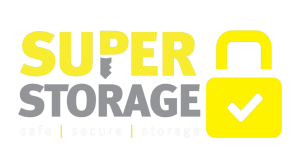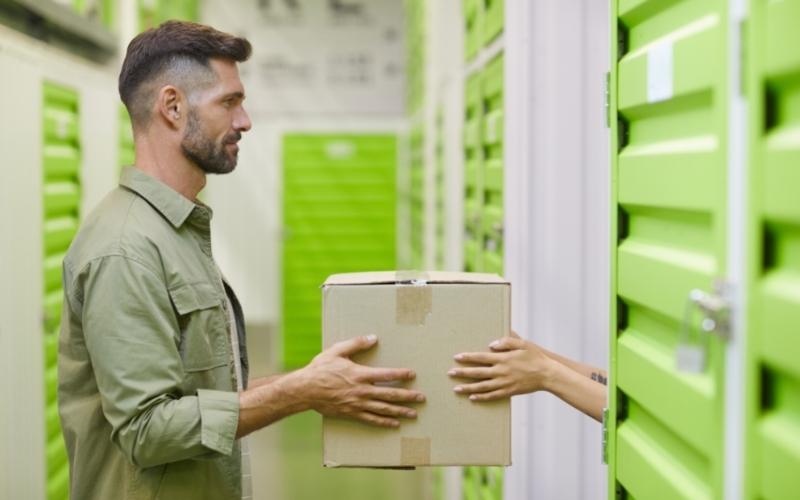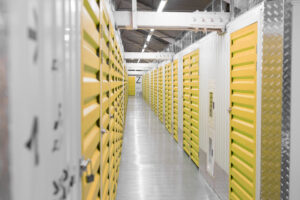Self storage is a cost-effective option for many people. It’s also a smart choice for those who need to protect their items from the elements. Self-storage is an alternative to using your own garage or basement as storage space, especially if you live in an area that could experience flooding, or if your home doesn’t have adequate space to store all of your belongings.
It’s difficult to calculate exactly how much self-storage will cost you as many storage facilities charge based on the amount of time that you need to store your items. Depending on your needs and the size of your storage unit, this could be well worth it or a waste of money.
The good news about self-storage costs is that it’s not just one price for everyone. The flexibility offered by self-storage allows you to choose how long you’ll need your items stored and how much space you’ll need. If you’re only going to be storing items for a few months, then you can likely find a less expensive facility than if you’re going to be storing everything for several years.
How Much Does Self Storage Cost?
Self storage prices vary widely depending on the size of the unit that you need, as well as whether or not you require climate-controlled storage for your belongings. The most basic self storage units are small enough that they can be found in almost any neighborhood, they’re an ideal option if you simply have some large items that won’t fit inside your new home or if you need somewhere to temporarily store extra furniture while unpacking. For those who need a bit more room or protection from the elements, there are larger and more specialized self storage units available at facilities that offer climate control.
Basic Storage Fee
Most self storage companies offer a wide range of storage options with fees based on the size and type of the unit. These units can be fitted with shelves for securing boxes, furniture and other items. Many facilities provide individual access points with digital door openers and security cameras for added protection.
- Storage space: Basic storage space is usually offered at a low cost of £4 per week per square meter. For example, an 8m x 8m x 2m storage unit would cost £384 (£4 x 52 weeks) per year.
- Storage insurance: Self storage facilities typically don’t offer insurance unless it’s specifically requested by the customer. Some facilities may also offer additional insurance at an additional cost, which could be useful if you’re looking to protect certain items within the storage unit.
- Storage boxes: You can usually rent plastic or cardboard boxes from self storage facilities, which helps cut down on transport costs if you already have some available at home.
- Lock: You may need to buy a new, sealed lock at your storage location if your own lock does not fit.
- One-off administration fee: Some companies also charge a one-off administration fee when you sign your first contract with the company. Returning customers do not need to pay this fee.
The Factors that Affects the Price of Self-Storage Units
Self-storage fees vary depending on a number of factors, including the size and location of the unit, the facilities provided by the storage facility (such as climate control or unique security codes), and whether you are renting a conventional unit or one with extra features, and whether you are renting by the month or renting by the year.
1. Location
You’ll typically find that the farther away from a city center a self storage unit is, the cheaper it will be. This is because land is less valuable farther from the city center, so it makes sense that storage facilities would charge less for their services.
It is also an important factor, because if your storage facility isn’t near where you live then it’s going to cost more for you to get there and back every time you want to access your things.
2. Size
Size is measured in cubic feet. The price of a storage unit is different for each available size. Larger units are more expensive than smaller ones However, if you buy a bigger unit so that you can store more in it, it might turn out to be cheaper in the long run because you can fit more things into one space.
An extra-small 5 x 5 storage unit will cost £41.20 per month, while a medium-sized 10 x 10 unit costs £101.45 per month. A large 15 x 30 storage unit costs £210.50 per month. The largest units are 20 x 20 and 20 x 30.
3. Type
Each unit at a facility will be labeled with one of four letters D, T, S and B.
- D units are used for non-temperature-controlled items like filing cabinets and mannequins.
- Temperature-controlled products, such as perishable food and wine collections, are stored in T units.
- S units are used to store items that must be kept dry, such as tools, or items that must be protected from moisture, such as electronic media storage.
- B units are climate controlled and have specific lining to keep mould and mildew at bay.
Because they guard against humidity, heat, and cold, climate control storage units are more expensive than standard temperature-controlled storage containers.
4. Extra facilities provided by self storage companies
Many self storage facilities have amenities such as free use of their truck for moving heavy items, 24-hour access, package acceptance, front office hours during the weekend, and other services that can justify an increase in rental fees per month.
5. Company self prices
Company also plays a role in determining price as well as size, because larger companies can afford to pay more in rent than smaller ones. For example, if Company A pays £10,000 per month for their facility, whereas Company B pays £5,000 per month for theirs, then Company A will likely charge customers more for renting a unit than Company B.
Read also: Packing Tips: How to Pack a Carton of Clothes Vs a Suitcase?
Conclusion
If you’re interested in the subject of self-storage, you may also have questions about how much all of this costs. Of course, the exact price you’ll have to pay can vary depending on a number of factors, including: the size of the unit (bigger units are often more expensive), the provider that you choose (not all storage sites charge an identical fee), and even your location (prices vary with each region).
The study reveals that the self-storage industry in the UK is expected to rise at a steady pace over the next five years, due to the increasing population, shifting overseas properties and increasing business costs. The report also predicts that this will directly result in an increase in self-storage facilities. With rising demand for self-storage solutions, buyers should purchase property with an existing facility, which seems to be more profitable than starting from scratch.
Are you looking for a Free Consultation for your storage needs?Click Here !




